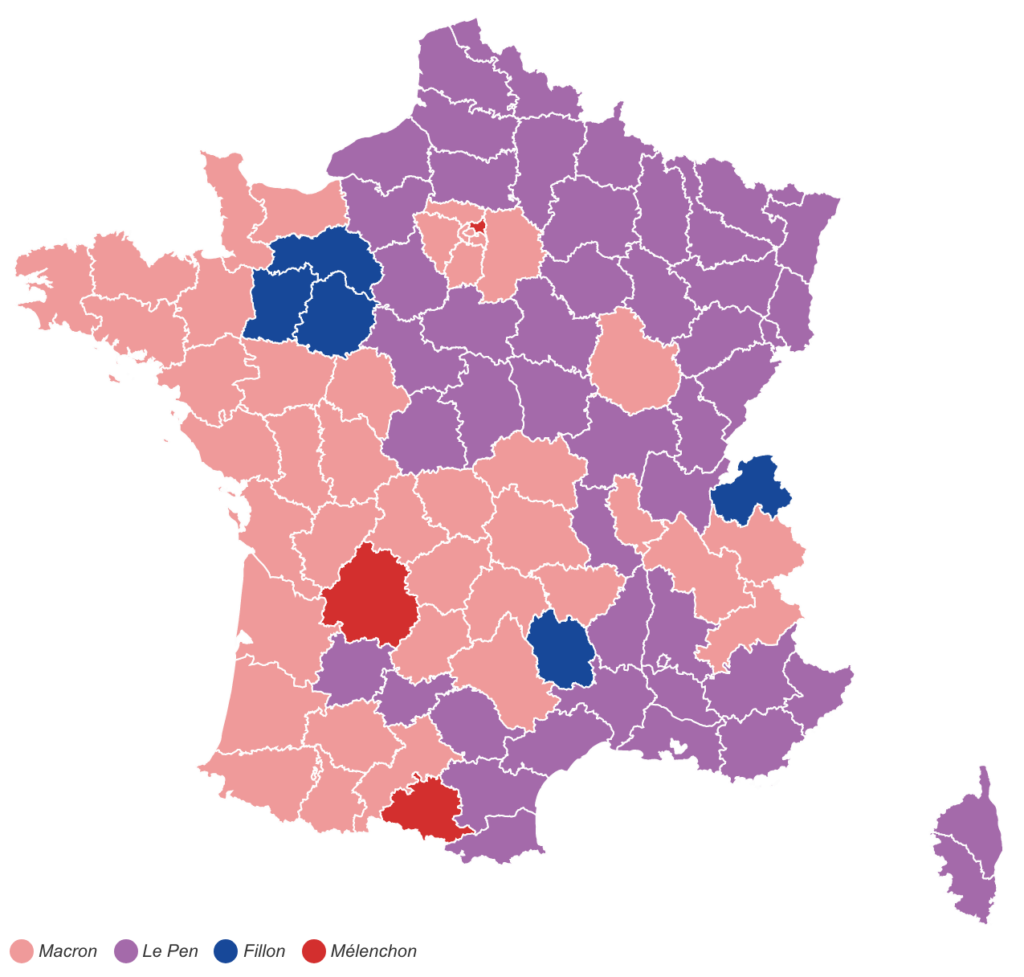
Ultimately, a 30-point landslide portends more significance than a 20-point landslide. ![]()
French voters emphatically rejected Marine Le Pen, though not, perhaps, by the same margin as they rejected her father 15 years ago. But polls, which showed Emmanuel Macron’s 20-point lead shrinking ever so slightly two weeks ago, rebounded after the sole debate during the runoff campaign. Macron’s ultimate margin of victory was beyond what polls were even showing by the end of last week.
Generally, Le Pen and the hard-right Front national knew that a win was highly unlikely. A ‘victory’ would have been winning over 40% of the vote by, say, winning over a majority of the first-round supporters of François Fillon, the candidate of the center-right Les Républicains — or at least winning majorities in the southeast and north of France where Le Pen’s support was strongest.
Instead, Le Pen didn’t even break 34% nationally. She won just two departments: Pas-de-Calais and Aisne in the north of the country. In Paris, the French political, administrative, financial and cultural capital, she won just 10.3% of the vote. Le Pen’s performance fell so short of hopes and expectations that she now hopes to rename her party before next month’s parliamentary elections and could face internal questions about her leadership. Continue reading Macron’s landslide win a emphatic mandate for liberal democracy




